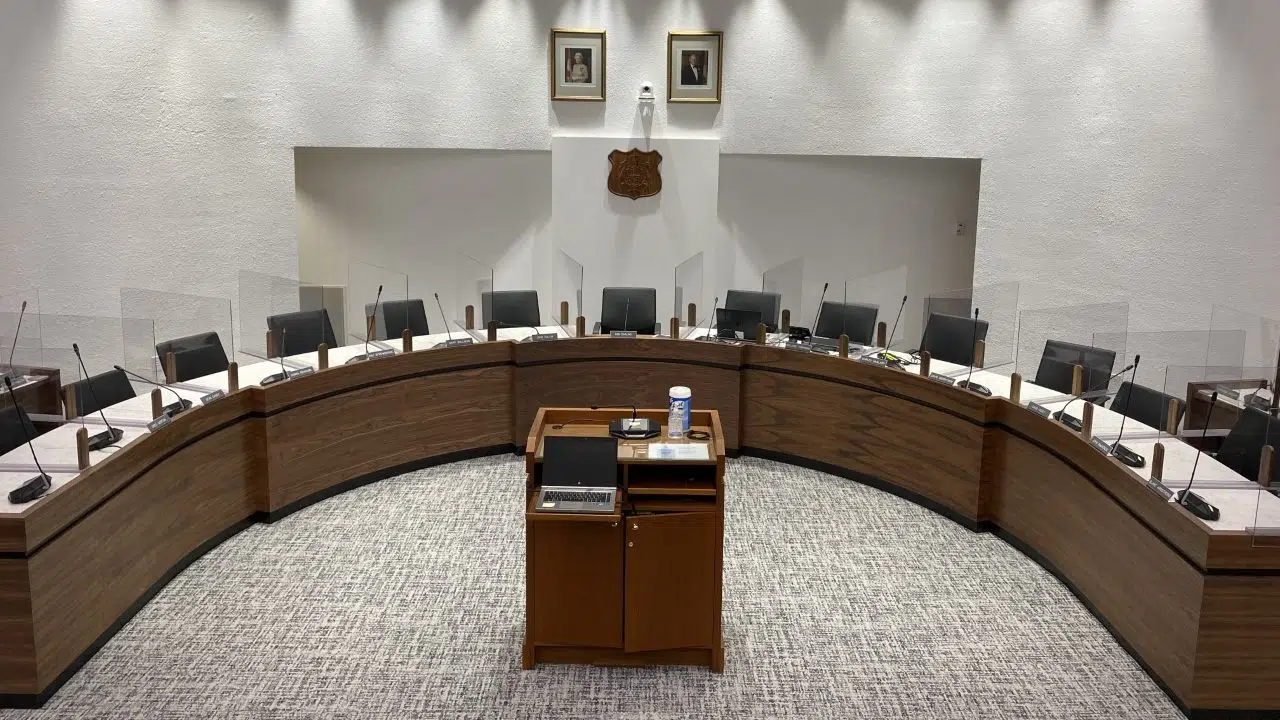The City of Saint John is reaching out to vendors regarding a new procurement policy that places social value at the heart of decision-making.
“Social procurement is leveraging existing procurement practices to affect social impact. It means adding value when sourcing goods and services, and with construction projects,” says Chris Roberts, procurement manager for the City of Saint John. Roberts says the aim is to have city council approve a social procurement policy by the end of June.
A social procurement policy would take into consideration factors like environmentally responsible products and equipment, low carbon, respect for the values of inclusivity, diversity, equity, culture, and fair labour practices – including living wages.
The quest to incorporate social value into procurement strategies began in the city over a year ago, as the city recognized the need to modernize its 2011 procurement policy.
Some of the procurement professionals at the City have already completed the Social Procurement Professional Certificate offered by the organization Buy Social Canada, which defines social procurement as “leveraging a social value from an existing procurement.”
By supporting vendors with a high social procurement score, Roberts says the City expects to see a “return on investment that can be: reduced social needs, taxes and benefits paid by employees, increased local spending, reduced shelter costs, reduced crime-related costs, reduced reliance on social subsidies, increased employability, increased self-esteem, improved health and improved quality of life”.
Roberts acknowledged that there are other compelling factors competing with social procurement strategies when determining vendors for procurement contracts.
“We’ve been working very closely with our general counsel on implementation,” says Roberts. “Some of the constraints as a public body that we’re subject to are the provincial procurement act and regulation, the national trade agreements such as the Canadian free trade agreement, the opening of public procurement between Quebec and New Brunswick, and also international trade agreements such as the Canadian European trade agreement and the continually evolving case law.”
The City has opted to move slowly with its social procurement strategy, for now applying it only to contracts that are below thresholds that invoke the above laws, approximately $120,000 for goods and services and $300,000 for construction.
“What that means is any procurement above these values has to go out for open competitive public bidding,” he says. “Above those thresholds, it gets very difficult to include things such as social value.”
Roberts says once the proposed social procurement policy is approved the City will be rolling out two protocols. The first is a supplier roster, a list of vendors who “have demonstrated that they create social value through their operations.” These vendors will be identified via questionnaire and those that meet the criteria (ex: environmental stewardship, living wage, owned by a marginalized group) will be identified by staff for procurement opportunities.
“The second protocol is a social value calculation when conducting procurement evaluations,” he says. “At a high level, that will enable the city to apply a calculation to bid prices or bid scores to recognize the inclusion of social value.”
“We’re going to continue to create more protocols and awareness with the goal of increasing our social value contributions.”
The Halifax Regional Municipality also has a Social Value Procurement and Supplier Code of Conduct policy which it started in 2020.
The policy is summarized on the Halifax.ca webpage, stating “through our Social Value Framework and our Supplier Code of Conduct we add to the overall value of our procurement by including considerations related to worker’s right, supplier and supply chain diversity, workplace initiatives such as apprenticeships and paid internships, the creation of meaningful and inclusive employment opportunities for underrepresented groups and support for suppliers who have an implement their own Social Procurement and Living Wage policies.”
In 2021, representatives of Nova Scotia’s construction industry expressed concerns with the living wage portion of the policy, which was defined by the Canadian Centre for Policy Alternatives as $21.80 per hour in that province.
In a letter to the chair and vice chair of the Community Planning and Economic Development Standing Committee for the HRM, the Construction Association of Nova Scotia, the Nova Scotia Road Builders Association and the Nova Scotia Home Builders Association said the policy would have an “impact on the competitive landscape for those navigating between contract work with the HRM and non-HRM contracts”; an “impact on the amount of work that can get done (less work done for same budget amount)”; and would reduce “the number of contractors will to bid HRM work”.
Alex Graham is a reporter with Huddle, an Acadia Broadcasting content-sharing partner.






Comments